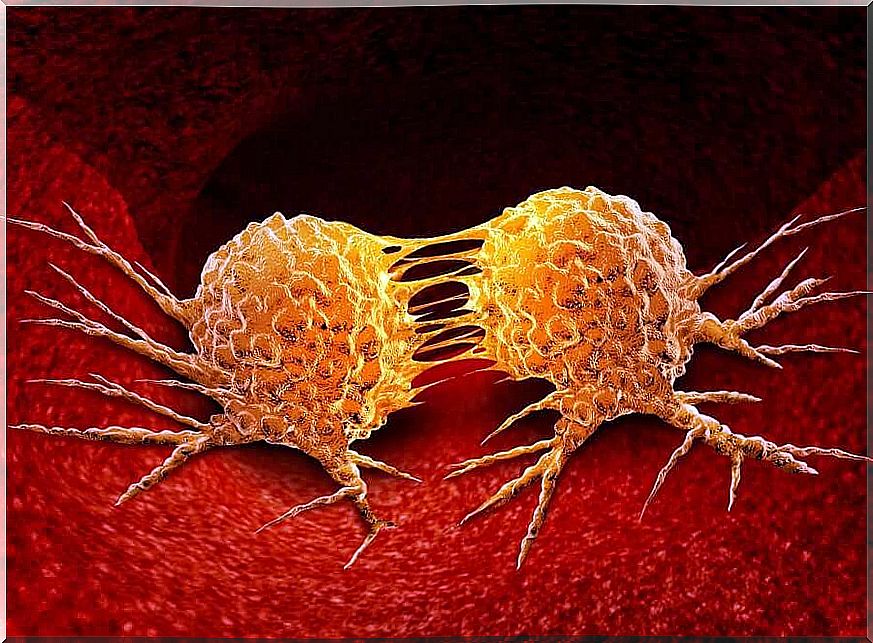The Pan-Cancer Genomic Study: Detecting Tumors Before They Appear
The journal Nature has published the progress of the Pan-Cancer genomic study. Researchers say it is possible to detect genetic mutations that cause cancer before they occur. We tell you more about it in this article.

The prevalence of cancer in the world is high. About a third of the population will suffer from cancer at some point in their life. It is a major cause of death. It is in this context that the Pan-Cancer genomic study takes place.
The factors associated with the development of cancer in humans are varied. We will come back to this later, but it is interesting that the complexity of human nature is, in a way, a cause that explains cell mutations.
For some philosophers and scientists, the genetic mutation that leads to cancer is linked to the very power of DNA (deoxyribonucleic acid). Our functioning is so complex that an error in the programming of our life is not surprising.
This is why the scientific community has long studied the genetic causes behind cancer. Among the various studies, there is the Pan-Cancer genomic study, which is echoed in the journal Nature .
Nature had previously published information about the progress of this research. This journal has now published around twenty articles on the subject at the same time. The review informs us that the study group analyzed more than 2,500 people with almost 40 different tumors.
The Pan-Cancer genomic study, which is part of the human genome project, brings together scientists from different countries. A total of 1,300 professionals worked on it with three supercomputers to process the information.

Why does cancer appear?
We know cancer is multifactorial. This means that, with a few rare exceptions, it is not possible to attribute the formation of a tumor to a single factor. The Pan-Cancer genomic study, on this premise, sought to sequence the genes that may be involved in tumor formation.
Scientists claimed to find out how to change DNA in order to put an end to this process of uncontrollable abnormal cell growth and multiplication that is cancer. These genetic mutations can be attributed to almost one hundred different types of factors.
- Lifestyle: tobacco, alcohol, an unbalanced diet are modifiable factors that contribute to the formation of a tumor. Tobacco is one of the worst factors
- Age: with aging, the processes of cells to prevent cancer no longer work well, resulting in uncontrollable cell multiplication
- Inheritance: Genetic mutations, in some cases, are inherited and are therefore passed on from parents to children
- Chance: DNA is able to mutate for an unknown reason. This is why we attribute this type of mutation to chance. The truth is, science doesn’t know what the mutation is due to. The problem is that this factor affects almost 60% of tumors
The human genome project
The Pan-Cancer genomic study is part of the human genome project, a project that started in 1990. The international scientific community launched this initiative in order to unravel the mysteries of human DNA.
The researchers expected to complete the project sometime in 2005, but the project was completed two years earlier. It was, in fact, in 2003 that the scientific community revealed to the world that the complete genetic information of the human species had been codified.
Thanks to this sequencing, it was possible to advance in the Pan-Cancer genomic study. Now that scientists knew all about human DNA, it was possible for them to identify the areas that were altered for each disease, including tumors.
Both projects are funded by different entities and different countries. However, they are not immune to economic problems. Many smaller research spurts out of larger ones that do not have the funds to continue.
Even these latest publications have encountered financial difficulties. The researchers themselves have said they have worked unpaid overtime and don’t know where the money will come from to continue.
Beyond these difficulties, the human genome project assumed a step forward for:
- Know all of our DNA
- Store and share information between scientists
- Improve techniques for analyzing genetic information in medicine
- Discuss the legal scope of this knowledge
The benefits of the Pan-Cancer genomic study

The scientists involved know this breakthrough is important, but they also know that cancer treatment will not change overnight. The benefits of the Pan-Cancer genomic study will be noticeable in the long term.
The genetic information will allow a more appropriate treatment to be offered to each patient. We are entering the era of individualized treatments with tailor-made medications.
It will also be possible to detect cancer early, probably via a liquid biopsy.
Of course, we must not forget the legal questions, just like the ethical questions. Can a health insurance organization refuse the membership of a person carrying a carcinogenic mutation?
There is still a long way to go, but scientists have taken a giant leap forward. We are undoubtedly closer to the day when we will be able to fight cancer on an equal footing. Who knows, maybe even fight it off before it actually shows up.









